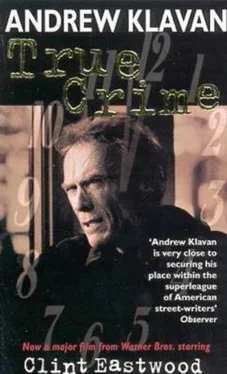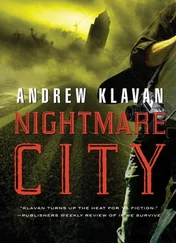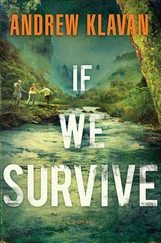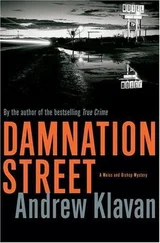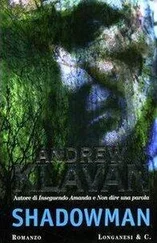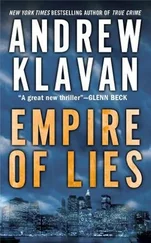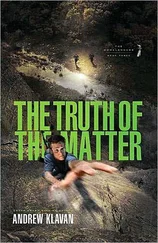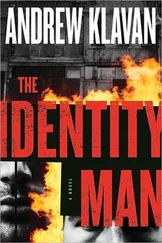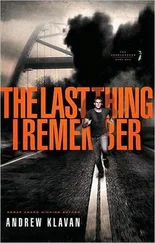Andrew Klavan - True Crime
Здесь есть возможность читать онлайн «Andrew Klavan - True Crime» весь текст электронной книги совершенно бесплатно (целиком полную версию без сокращений). В некоторых случаях можно слушать аудио, скачать через торрент в формате fb2 и присутствует краткое содержание. Жанр: Криминальный детектив, на английском языке. Описание произведения, (предисловие) а так же отзывы посетителей доступны на портале библиотеки ЛибКат.
- Название:True Crime
- Автор:
- Жанр:
- Год:неизвестен
- ISBN:нет данных
- Рейтинг книги:4 / 5. Голосов: 1
-
Избранное:Добавить в избранное
- Отзывы:
-
Ваша оценка:
- 80
- 1
- 2
- 3
- 4
- 5
True Crime: краткое содержание, описание и аннотация
Предлагаем к чтению аннотацию, описание, краткое содержание или предисловие (зависит от того, что написал сам автор книги «True Crime»). Если вы не нашли необходимую информацию о книге — напишите в комментариях, мы постараемся отыскать её.
True Crime — читать онлайн бесплатно полную книгу (весь текст) целиком
Ниже представлен текст книги, разбитый по страницам. Система сохранения места последней прочитанной страницы, позволяет с удобством читать онлайн бесплатно книгу «True Crime», без необходимости каждый раз заново искать на чём Вы остановились. Поставьте закладку, и сможете в любой момент перейти на страницу, на которой закончили чтение.
Интервал:
Закладка:
Andrew Klavan
True Crime
“Good people are always so sure they’re right.”
Barbara Graham, on entering California’s gas chamber, where she was executed, some say unjustly, June 3, 1955. (Quoted in Until You Are Dead: The Book of Executions by Frederick Drimmer)“I’ll tell you briefly what I think about newspapermen: the hand of God, reaching down into the mire, couldn’t elevate one of them to the depths of degradation.”
Nothing Sacred. Screenplay by Ben Hecht.PREFACE
This is not one of those modern works that mingle fact with fiction. All the events and conversations I’ve described here were either witnessed by me or reported to me by one or more of the participants. That said, the reader will quickly become aware that I have not restricted myself to the description of events and conversations alone. This story would not be complete without at least some reference-and sometimes a lot of references-to people’s inner thoughts, feelings and motives. And, where I’ve sought to describe such things, I confess a certain amount of deduction has necessarily come into play. That is, I’ve had to guess sometimes at what was going on in people’s heads.
The reason for this is obvious. Excluding maybe God, there’s only ever one witness to a person’s inner life. When that witness is not self-aware or is untrustworthy or is deceased, it becomes very difficult to get at the truth about his emotional world. So with the blind, the dishonest and the dead-and I encountered all three in researching this-I’ve recorded my own impressions. Sometimes I’ve made these deductions explicit, often I hoped the context made them so. In the end, the reader will have to measure the degree to which my understanding of individual human nature is biased or flawed.
All this, I should add, I take to be a serious breach of the rules of journalism. I’m a newspaperman, a day-to-day reporter. My job, as I see it, is to record what I witness and what people tell me. I try to save my brilliant insights and perceptions for the barroom, where I can impress members of the opposite sex with my depth and sensitivity. But writing a book is different from writing a news story. A book ought to be about something. And wherever I’ve deviated from my usual methods of reporting-wherever I’ve played fast and loose with the literal truth-it had to do with what I think this book is about, and what it’s not about.
It is not, first of all, about the “issue” of capital punishment. My opinion on that-and on the concept of “issues” in general-is expressed early on in the text, so I won’t repeat it here. Suffice it to say, I leave the whole question to those writers who are done impressing the opposite sex and still have some brilliant insights left over.
Second of all, this book is not about the law. The legal ins and outs of the Frank Beachum case are well detailed in two books by the attorneys involved. Tim Weiss and Hubert Tryon’s The Jaws of Death gives a passionate description of the authors’ efforts for the defense. Prosecutor Walter Cartwright’s The Thirteenth Juror takes a different approach and attacks American journalism in general, and yours truly in particular, for using cheap emotionalism to distort the public’s view of the facts in an attempt to supplant the courts in their proper function. My personal feelings about Cartwright aside, I must admit he makes an excellent argument. In any event, all three of these authors know a lot more about the law than I do, and all three were much closer to that aspect of the story than I ever was.
Finally, and most important, this book is not a detailed examination of the murder of Amy Wilson. The series of articles I wrote for the St. Louis News and the piece I wrote for The New Yorker that was based on the News articles have pretty well exhausted me on those subjects. Nor will I attempt to refute the recent attacks on my “character” by certain self-styled minority leaders and by columnists on both the religious right and the feminist left. I haven’t tried to hide my “character”-read what follows and I promise you’ll get a face full of it-but my many faults don’t change the facts of the case in the least.
So that’s what the book is not about. What is it about? It’s about Monday, July 17, of last year: one brutally hot day, and what happened on that day, the day Frank Beachum was rolled into the death chamber at Osage State Correctional Facility.
The reader might well ask why-when there are such important matters as capital punishment, the law and murder to discuss-why I would choose to tell such a simple story and a story-that of the last hours before a condemned man’s execution-that’s been told so many times before both in journalism and fiction. Well, partly it’s because it’s true and I was there and they paid me to do it. But also, on this day, in these hours, under these circumstances, I found myself an eyewitness to a remarkable confrontation between a number of people-their ideas, their theories, their feelings and perceptions-and an incontrovertible outward reality: Death, destroyer of worlds, jolly muncher of our philosophies. In a business-in a society-so overwhelmed with images and words, with pundits, spin-doctors, experts and jumped-up cultural interpreters of all persuasions, I find it important to remember that such an outward reality exists, that such confrontations do occur, and that even our best ideas, theories, perceptions and feelings may count for exactly nothing in the big old scheme of things.
So, as I say, I have tried to understand the ideas and perceptions of as many of the participants in this drama as I could in order to show how they were tested. Frank Beachum, of course, was chief among them. He was the one, with his faith in traditional Christianity, and his old-fashioned notions of manhood, who was carried direct into the crucible. But there is also his wife, Bonnie, his jailer, Luther Plunkitt, his minister, Harlan Flowers, assorted pols and lawyers and journalists-and me, naturally, last and, for all I know, least.
Again, I leave it to the reader to decide how all of us weathered our midnight confrontation with the undeniable.
I wish to thank all the people who so generously agreed to be interviewed for this book, both those mentioned in the text and others, too numerous to name, who provided background.
I wish to thank my agent, Barney Karpfinger, for his unfailing support.
And I wish to thank the Ford Motor Company.
— Steven Everett
PART ONE
1
Frank Beachum awoke from a dream of Independence Day. His last dream before the hour, a cruel dream, really, in a sleep that had been strangely sound, considering. He had been in his backyard again, before his trip to the grocery, before the picnic, before the police had arrived to take him away. The heat of the summer’s morning had come back to him. He had heard the sound of the lawn mower again. He had felt the mower’s handle pressed against his palms and even smelled the mown grass. He had heard her voice too, Bonnie’s voice, as she called to him from the screen door. He had seen her face, her face the way it had been, pert and compact under short, tawny hair, pale-not pretty, she was never pretty-but given luster by her large, tender and encouraging blue eyes. He saw her holding the bottle up, the bottle of A-1 Sauce. She had been waggling it back and forth to show that it was empty. He had stood in his backyard under the hot sun, and his little girl, Gail, had been a baby again. Sitting in her sandbox again, the plastic one shaped like a turtle. Whacking the sand with her shovel and laughing to herself, to the world in general.
Читать дальшеИнтервал:
Закладка:
Похожие книги на «True Crime»
Представляем Вашему вниманию похожие книги на «True Crime» списком для выбора. Мы отобрали схожую по названию и смыслу литературу в надежде предоставить читателям больше вариантов отыскать новые, интересные, ещё непрочитанные произведения.
Обсуждение, отзывы о книге «True Crime» и просто собственные мнения читателей. Оставьте ваши комментарии, напишите, что Вы думаете о произведении, его смысле или главных героях. Укажите что конкретно понравилось, а что нет, и почему Вы так считаете.
